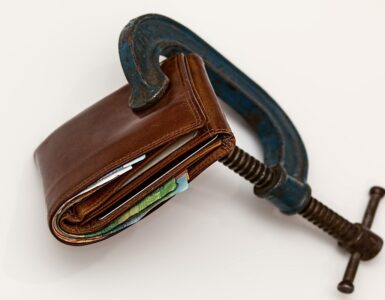A lot of people don’t really know for sure how much money they spend each month. Planning your budget can make you feel much more in control of your spending habits. In addition, it will be significantly easier to set aside a certain amount for the rainy days and reach your financial goals. Here are 5 simple ways to plan a budget:
1. Calculate your monthly net income.
Determine your net income to know your budget. Your salary or total wages minus retirement plans and health insurance or deductions for taxes is your real budget. You might instead focus on your total salary, which can lead to overspending. Calculate your monthly net income and make sure to do this each month if your income varies depending on the month. There are more simple ways to plan a budget, but you should start with this one if you don’t already calculate your monthly budget on regular basis.
2. Identify monthly expenses and separate them into fixed and variable expenses
What kind of expenses do you expect to have each month? Some of the amounts are the same each month while some of them vary. Fixed expenses are things like rent or mortgage and car payments, internet service, and child care. It’s anything else that you pay for each month in the same amount. Include the amount you need to pay to pay off a debt or the amount that you want to save too. Variable expenses are things like eating out, groceries, entertainment, and surprise expenses such as gifts. After you’ve written down your variable expenses, estimate how much of your budget you’ll need to spend on these expenses per month. If your income covers your expenses and there’s some money left, that’s a great start! You can save money or use it to pay off debt.
3. Try the 50/30/20 rule.
One of the simple ways to plan your budget is the 50/30/20 budget plan. It means that you spend approximately 50% of your budget on necessities, you don’t spend more than 30% on wants, and the minimum of 20% of your budget goes on debt repayment and savings.
Your needs include things like groceries, rent or mortgage, transportation, insurance, and basic utilities. If your needs require more than 50% of your budget, you might have to use a bit of your wants budget until you figure out how to cover them with 50%. Even if your needs are already covered by half of your budget, you can see if you can make the amount lower. You might be able to negotiate a better plan when it comes to bills and services. You might save money by getting more affordable car insurance or a cheaper cell phone plan.

Your wants are, unlike your needs, things that aren’t essential for you to be able to work and live. They include things like entertainment, dinners out, travel, and gifts. It can be difficult to separate your needs from your wants. There are certain things that you need to live your lifestyle, but if you could possibly live just fine without them, they’re likely your wants. If you’re having financial troubles, you could use a bit of your wants budget to increase the 20% budget for savings and debts. However, make sure that you dedicate enough money to your wants too. If you don’t enjoy the money you earn, you are likely to give up on your budget plan.
Your budget for savings and debts should be at least 20% of your net income. If you have to use this 20% for several things, prioritize them. For instance, your first priority could be having an emergency fund for unexpected expenses. The second priority can be paying off debt, and the third saving for retirement. Prioritize according to your goals, but this is a guideline that can help.
4. Track your spending.
One of the simple ways to plan a budget is to keep track of your spending habits. There are a lot of savings and budgeting tools that you can use, but you can also record your spending. Make sure to track your spending in some way and use it to make adjustments to your budget if needed.
5. Make adjustments.
Things are going to change in your life, and you should adjust your budget accordingly. You might get a pay rise or need to spend less on your wants. This is not the only reason why you should regularly adjust your budget. Your budget is not likely to be the same every month, even if you always get paid a fixed amount. One of the simple ways to plan a budget is to revisit it each month and make alterations if needed.












